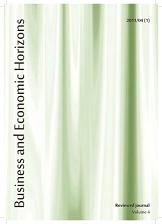Economic assessment of the impact of climate change on the agriculture of Pakistan
Economic assessment of the impact of climate change on the agriculture of Pakistan
Author(s): Mirza Nomman Ahmed, Michael SchmitzSubject(s): Economy
Published by: Prague Development Center
Keywords: Climate change; Pakistan; panel model; econometric analysis; adaptation.
Summary/Abstract: Climate Change in Pakistan among others manifests itself in temperature increases, rainfall reduction in the arid plains and increases in the monsoon areas and last but not least, accelerated glacial melt. All these and other developments call for a deeper insight into the effects Recent Climate Change - or Weather Change has had on Pakistan in the course of the last 17 years. In this context the threats to food security remain one core issue to be investigated based on productivity analysis. This article studies how climate change affects the agricultural productivity in Pakistan`s four provinces Punjab, Sindh, Balochistan and the N.W.F.P., measured as weighted food crop yields per hectare, for the food crops wheat, rice and maize. By considering the RABI (Nov-Apr) growing season and including a measure for drought to capture the occurrence of extreme events, exacerbated through climate change, the proposed hypothesis is that changing climatic variables have reduced and are reducing the agricultural productivity and thus posing a threat to long term food security. To depict the effect of climate change, several control variables are introduced in a panel framework for intertemporal analysis. As a result, we should expect lower levels of productivity in the arid zones with greater climatic pressure and adverse effects on food security through lower agricultural yields.
Journal: Business and Economic Horizons
- Issue Year: 2011
- Issue No: 04
- Page Range: 1-12
- Page Count: 12
- Language: English

